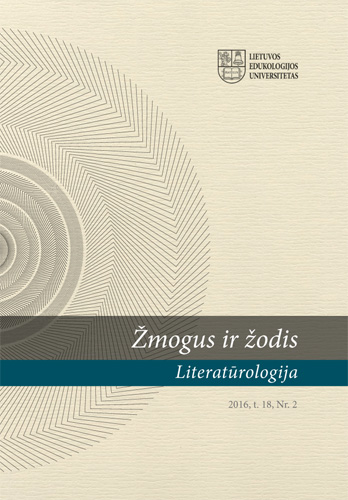Quelques reflets de la guerre russoroumano- turque de 1877-78 dans les littératures grecque et roumaine: « Moskov Sélim » et « Le Lieutenant Sterie »
Two reflections of the Russo-Turkish war of 1877-78 in modern Greek and Romanian literature: “Moskov Selim” and “Sub-lieutenant Sterie”
Author(s): Ekkehard Wolfgang BornträgerSubject(s): Military history, Comparative Study of Literature, Greek Literature, Romanian Literature, 19th Century
Published by: Vytauto Didžiojo Universitetas
Keywords: war literature; modern Greek literature; Romanian literature; Russo-Turkish War 1877-78; Romanian War of Independence; comparative literary reception; moral consciousness and national identity;
Summary/Abstract: Article’s attempt is to apply a comparative approach to the literary reception of the Russo/ Romanian-Turkish War of 1877-78. By crossing different national perspectives, the article focuses on two characteristic (albeit not necessarily representative) literary works, a novel by the Greek author Georges Vizyinos and a Romanian short story by Duiliu Zamfirescu. In dealing with this conflict, both texts in a relatively modern and “individualistic” way, address the dilemma of conflicting moral duties or national allegiances. In the case of Vizyinos, the extravagant Turkish “hero,” Moskov-Selim of the novel of the same title participates in the legendary defence of the Ottoman fortress of Plevna. The cynical and pitiless attitude of his own army towards him and the benign and civilised treatment he receives as a Russian prisoner of war make him a fervent champion of reconciliation between the Russians and Turks. Although he even considers switching loyalty, he finally remains a faithful (yet enlightened) Ottoman subject. Zamfirescu’s character Sub-Lieutenant Sterie in the novel Sub-Lieutenant Sterie, deeply shocked and being in material hardship after the death of his only brother on the battlefield has to choose between patriotic obligations and caring of his family. He wants to comply with the order of mobilization, but his family urges him to ask for an exemption to which he is legally entitled as the only surviving brother. The article summarises the “message(s)” of these texts and puts them in a wider context of contemporary war literature of the same era.
Journal: Žmogus ir žodis
- Issue Year: 18/2016
- Issue No: 2
- Page Range: 92-107
- Page Count: 16
- Language: French

